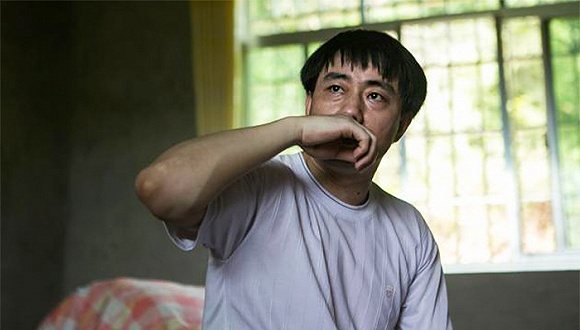This is NEWS Plus Special English.
A Chinese court has granted a man who spent more than 11 years behind bars after a false murder conviction more than 1.2 million yuan, roughly 200,000 U.S. dollars, in state compensation.
Citing insufficient evidence, a court in central China's Hunan Province overturned the guilty verdict against Zeng Ai-yun, a former graduate student of engineering at Xiangtan University in July.
Zeng was convicted in 2004 of murdering his graduate school classmate Zhou Yu-heng.
Zeng had been sentenced to death three times by the same court in 2004, 2005 and 2010. The Supreme People's Court rejected the verdicts and ordered a retrial.
Another classmate of the victim's, Chen Hua-zhang, was later found to be the real killer. Chen poisoned Zhou with diazepam on Oct. 27, 2003 as he was jealous of the attention Zhou enjoyed from their mentor. Chen deliberately laid a false trail and imputed the murder to Zeng, who was dating the victim's ex-girlfriend.
Chen and Zeng were both arrested in Nov, 2003. Zeng was sentenced to death while Chen received life imprisonment.
Chen was still sentenced to life imprisonment during the retrial and fined 178,000 yuan as compensation to the victim's family.

You're listening to NEWS Plus Special English. I'm Liu Yan in Beijing.
Taiwan's education department has increased the quota of mainland students who want to study in a two-year program to achieve a bachelor's degree.
The quota will be raised from 1,000 to 1,500 for the academic year of 2016 and 2017.
The two-year program is specifically open for students who study in vocational schools but would like to proceed in higher education and obtain a bachelor's degree.
Previously only students from southern provinces of Guangdong and Fujian were allowed to study in such programs in Taiwan. The department plans to add another four provinces as well as Beijing and Shanghai.
The application will start in February.
Compared with those in Europe and North America, colleges in Taiwan are considered a better option for vocational school graduates from the Chinese mainland. Taiwan colleges are known for the good education quality and lower tuition, as well as the convenience of being without language barrier.
The new policy is a result of negotiation between the two sides after the historic meeting between President Xi Jinping and Taiwan leader Ma Ying-jeou in Singapore. During the meeting, Ma suggested that the two sides allow more mainland students to study in Taiwan.












